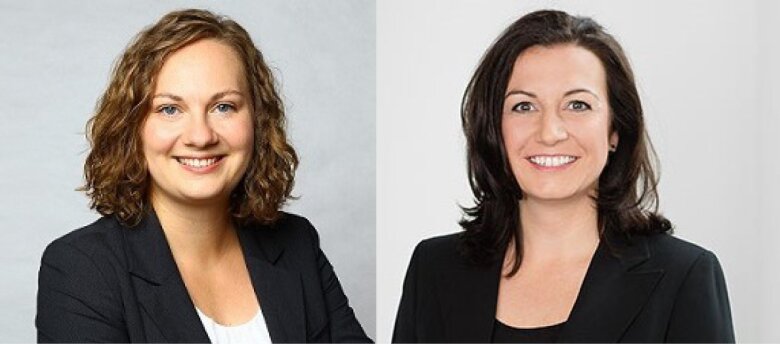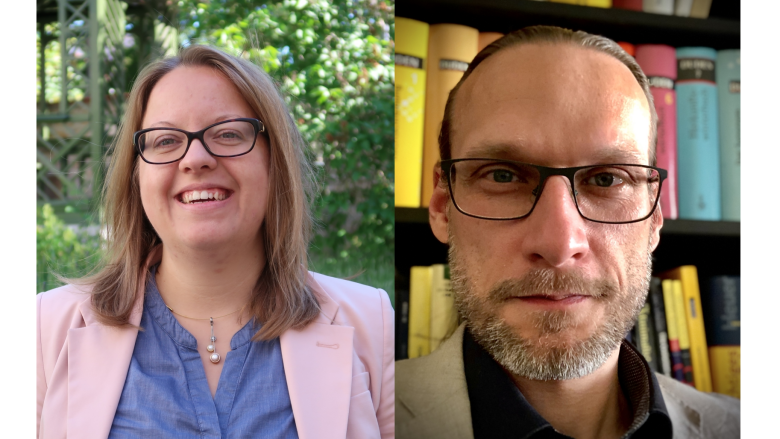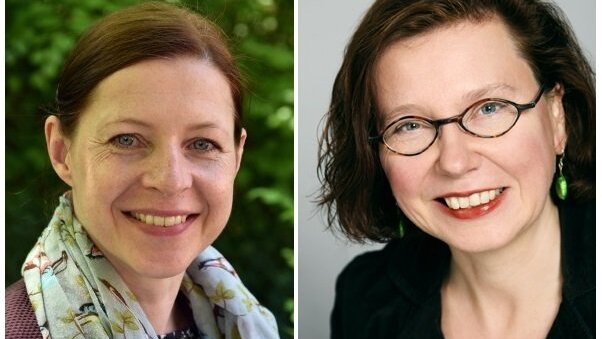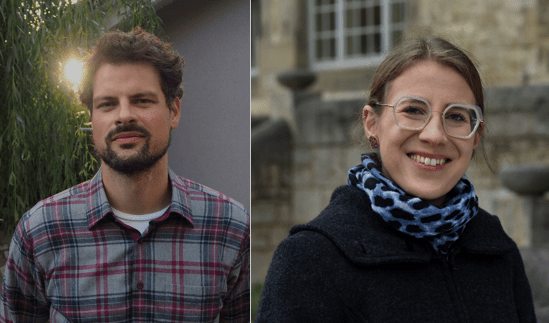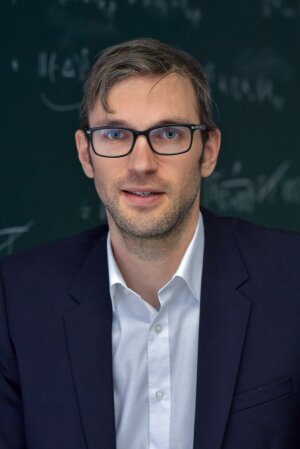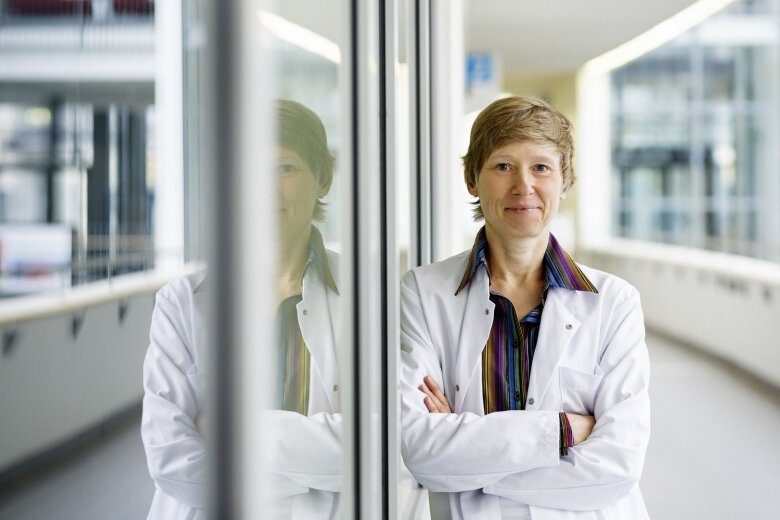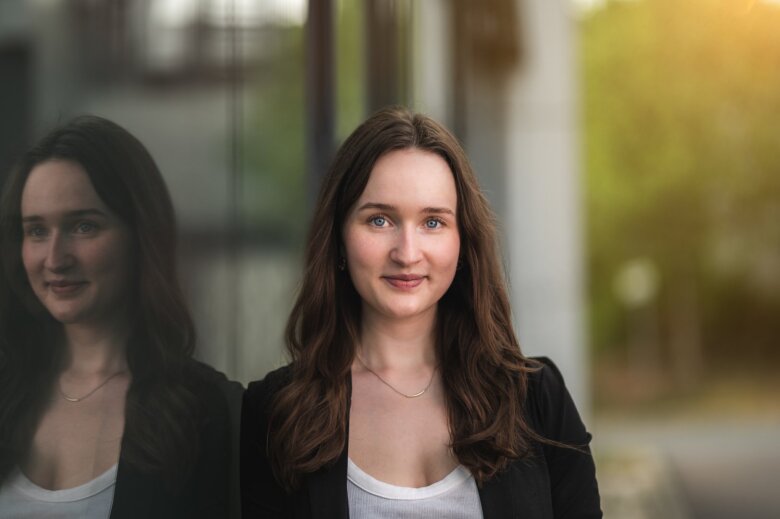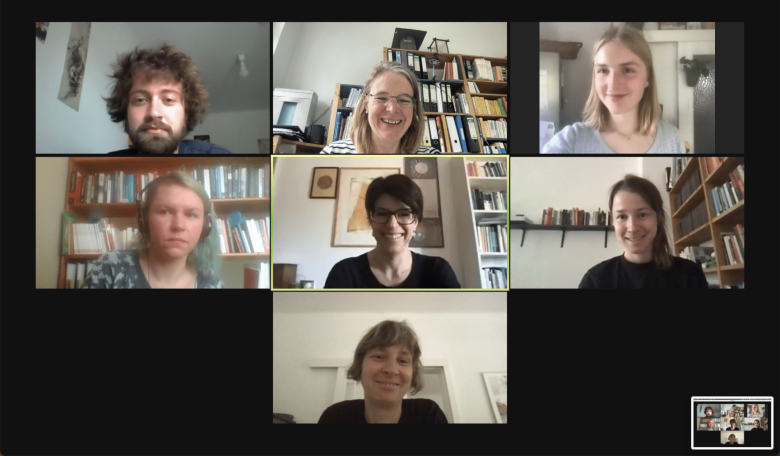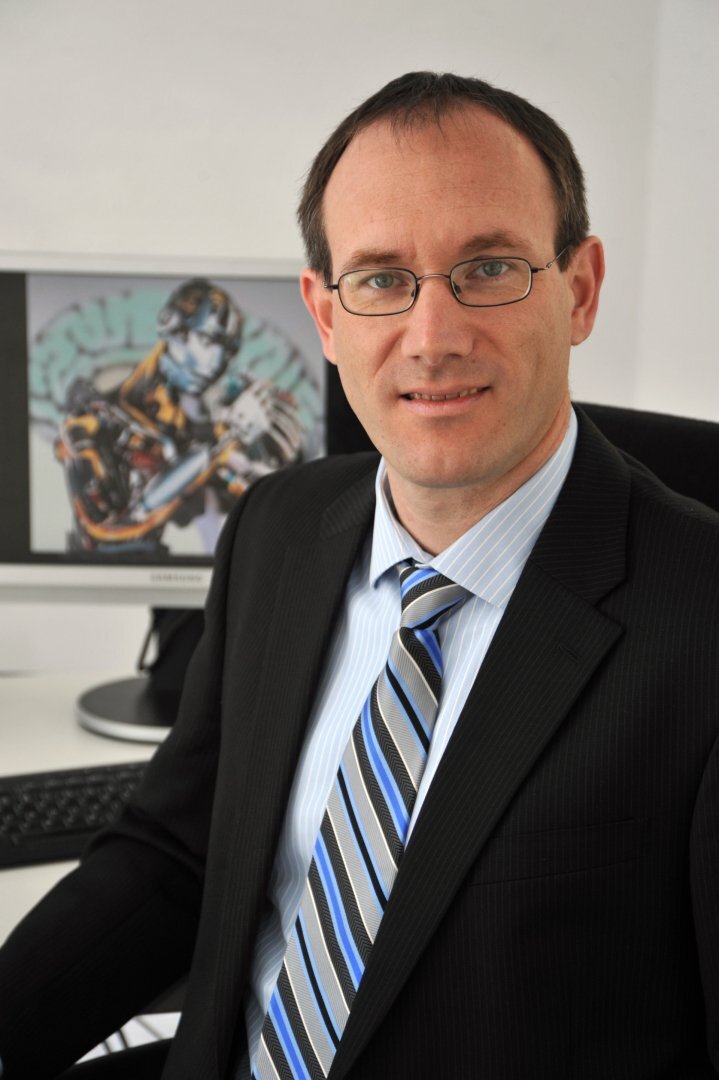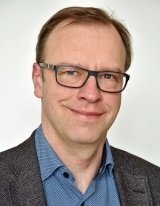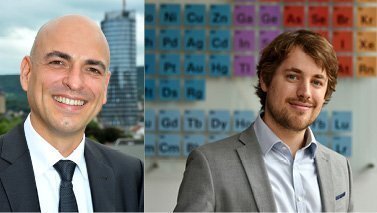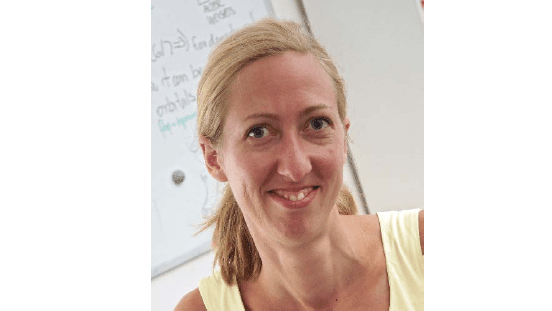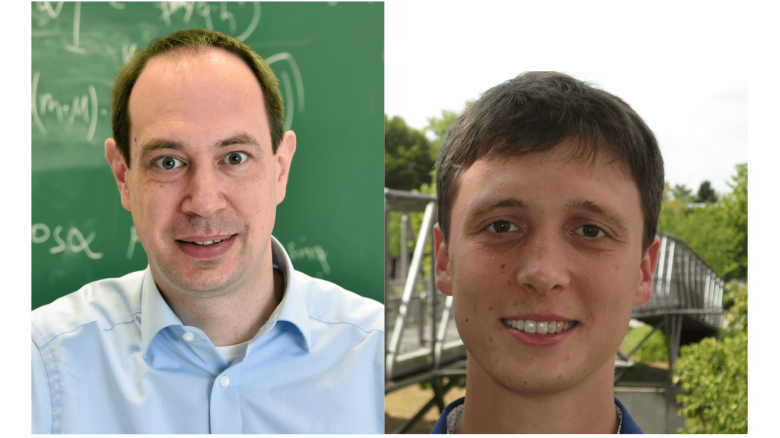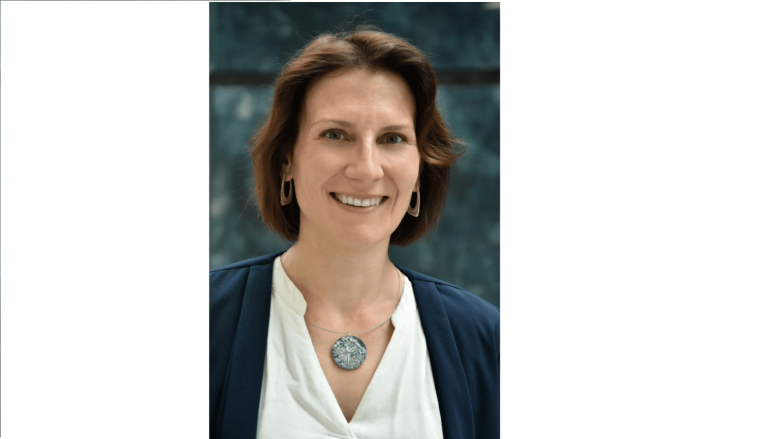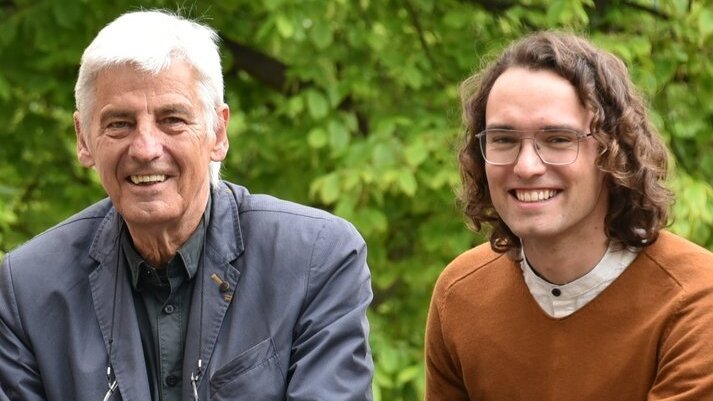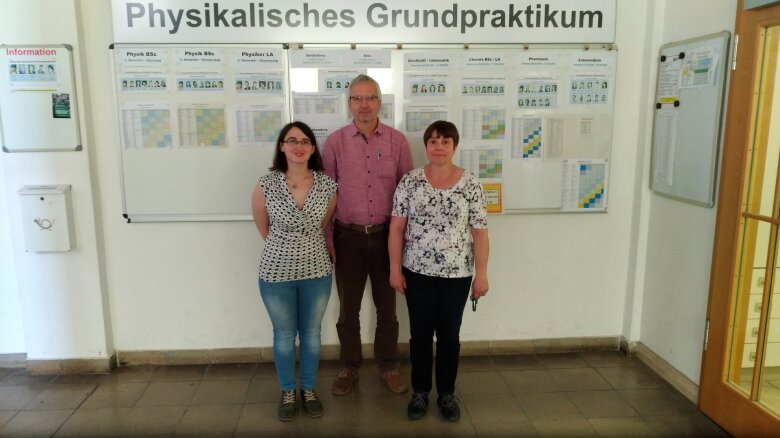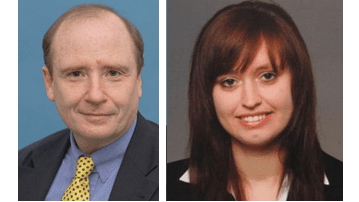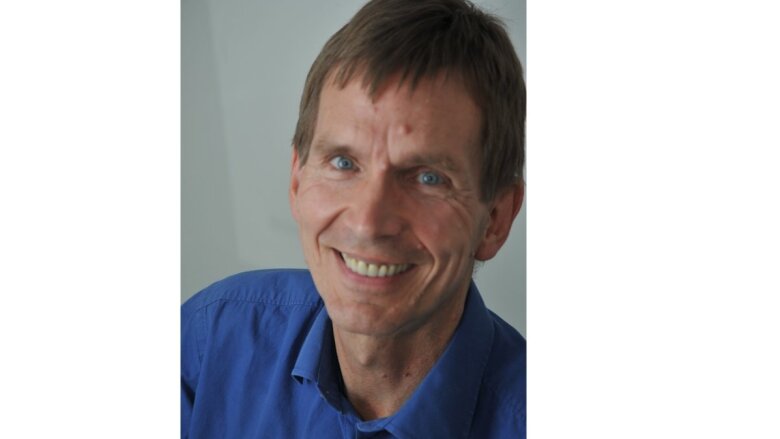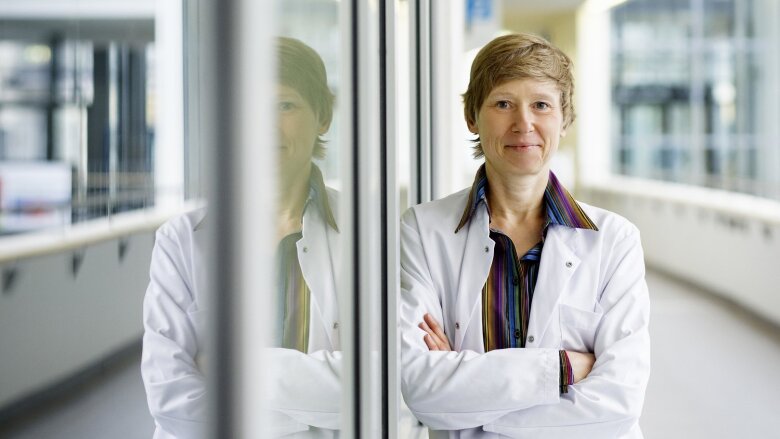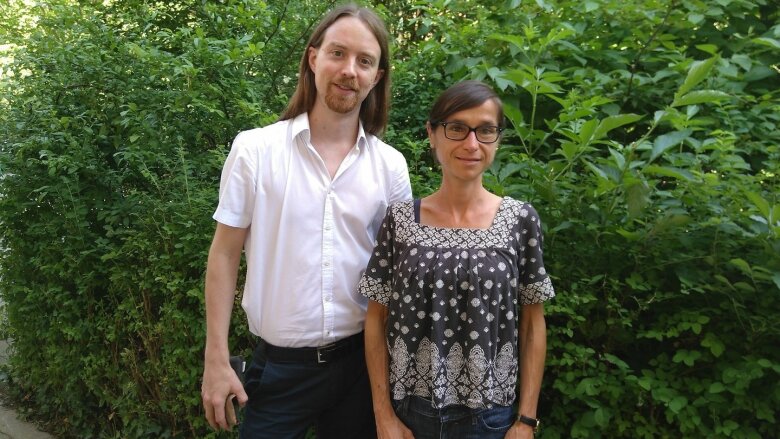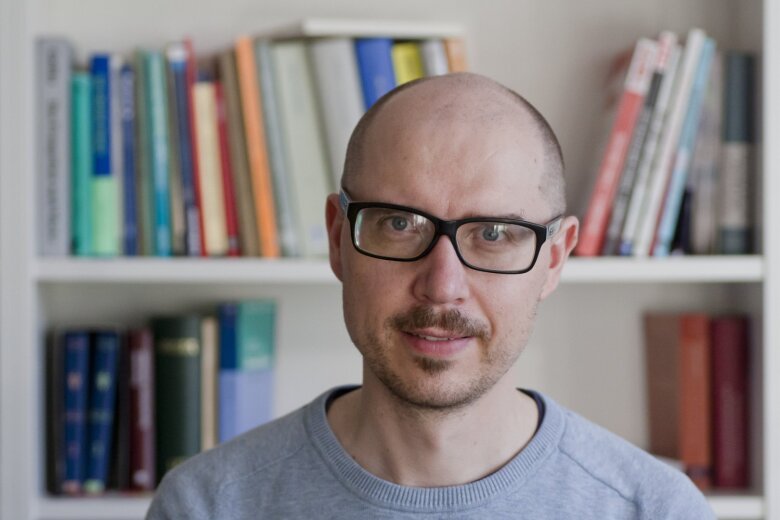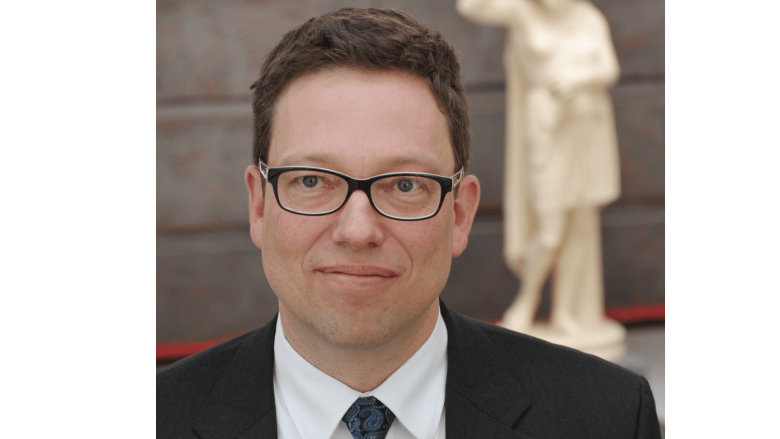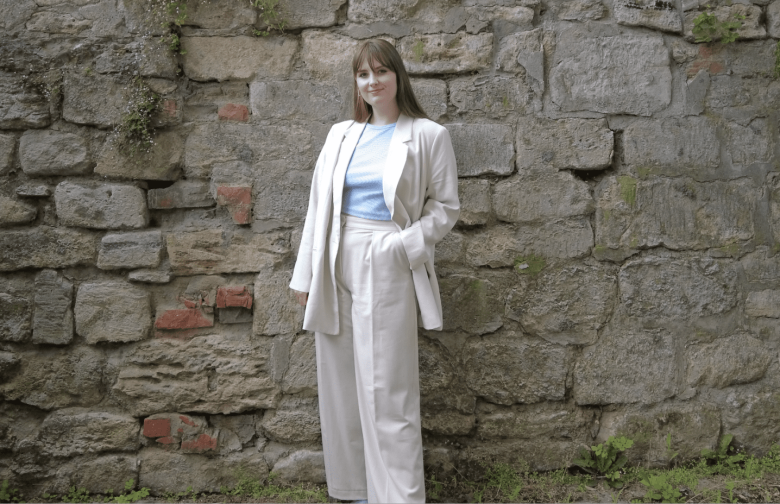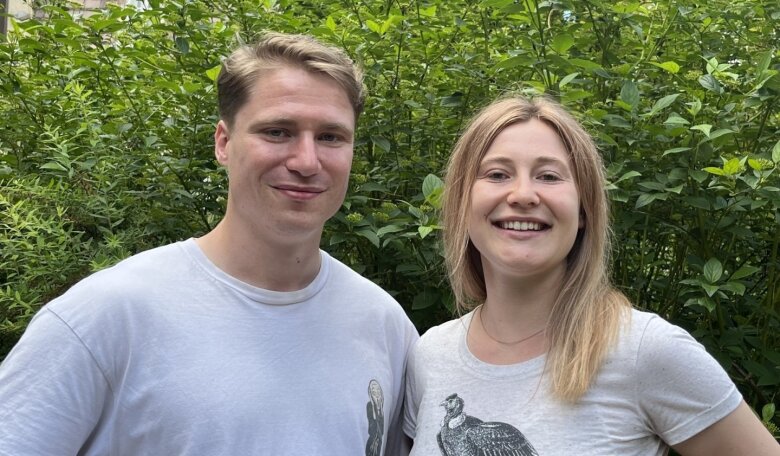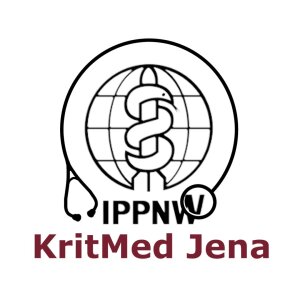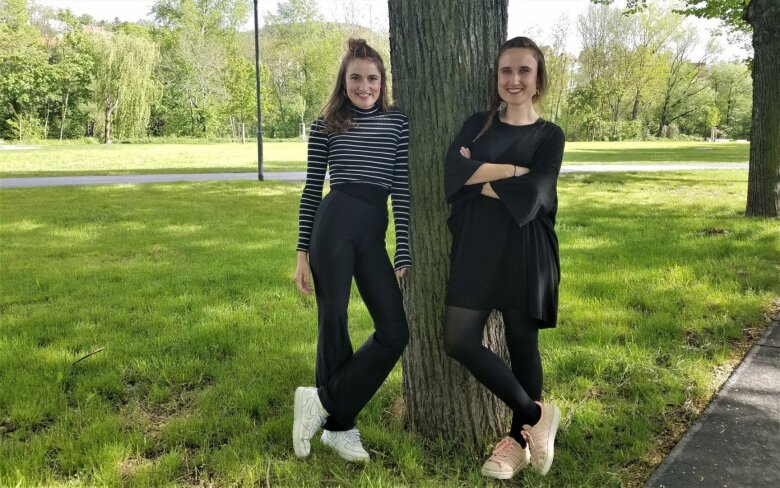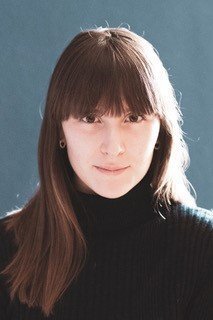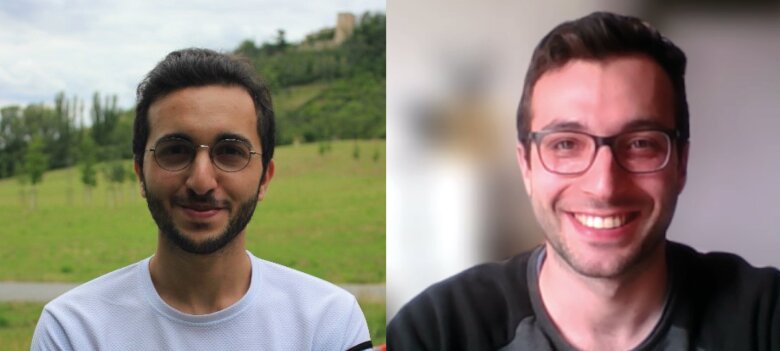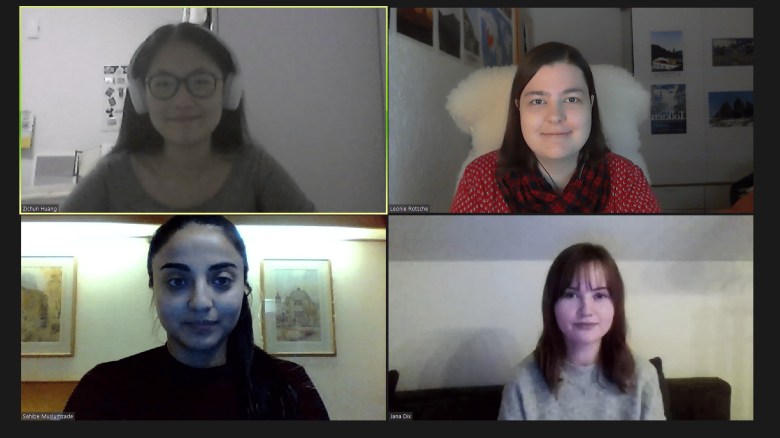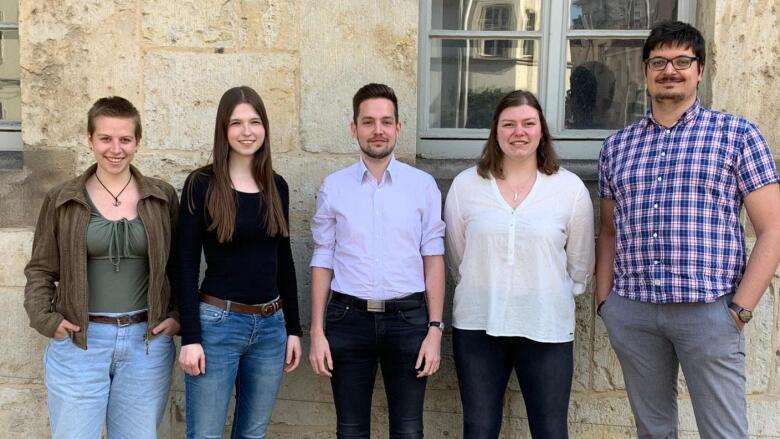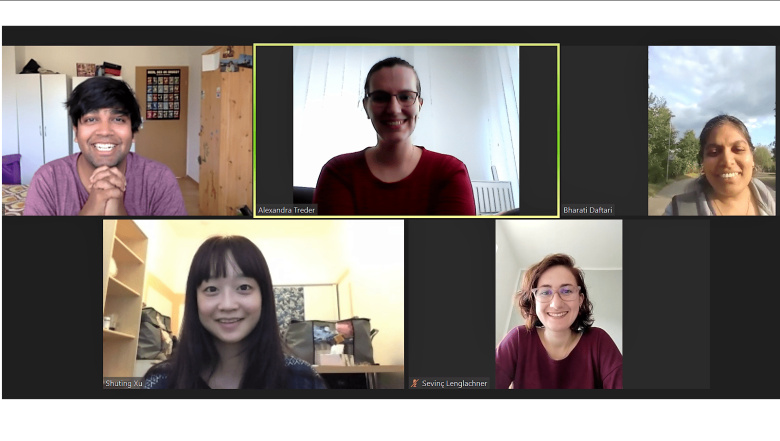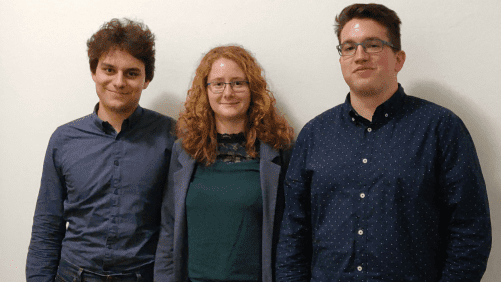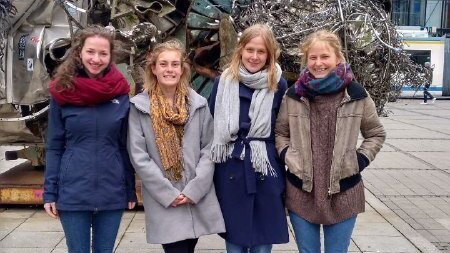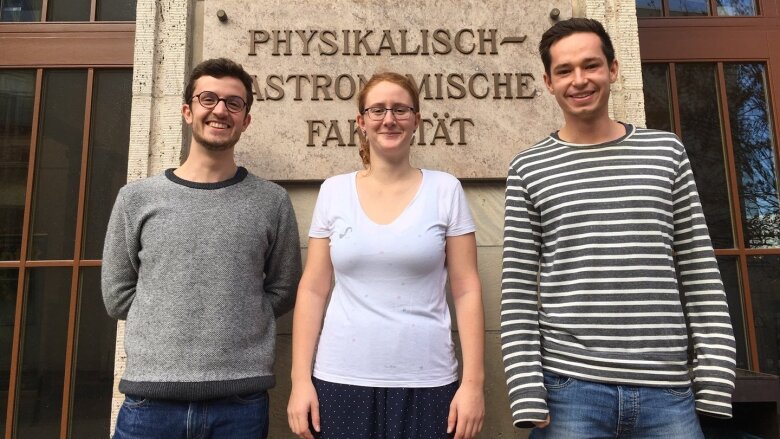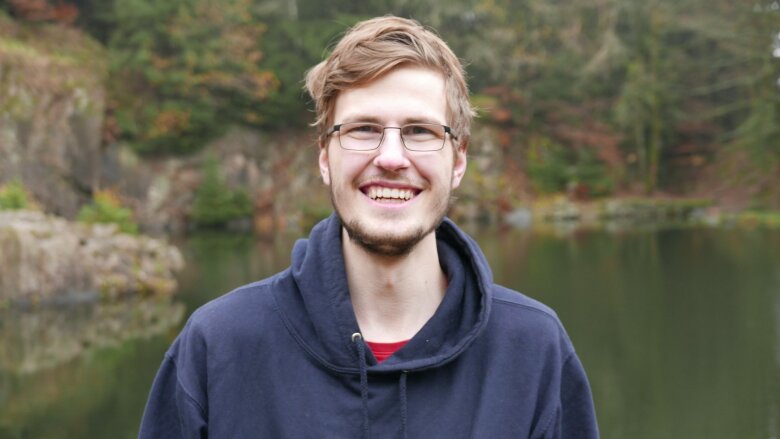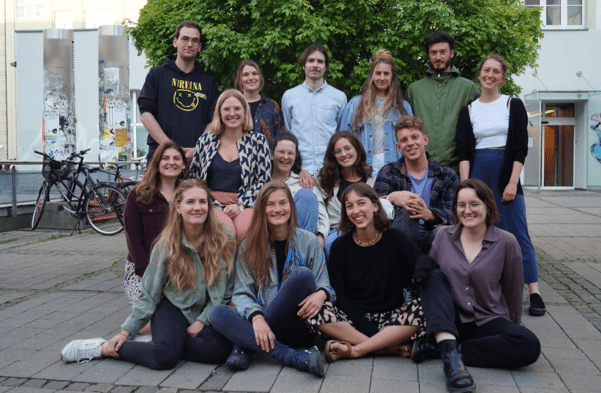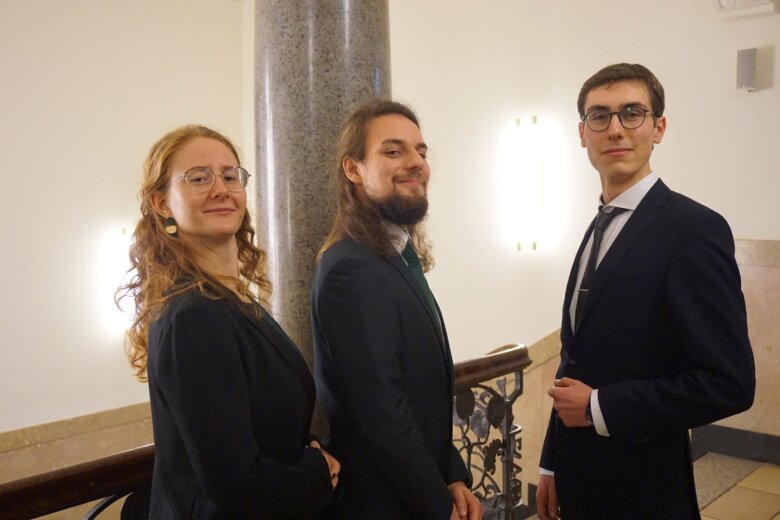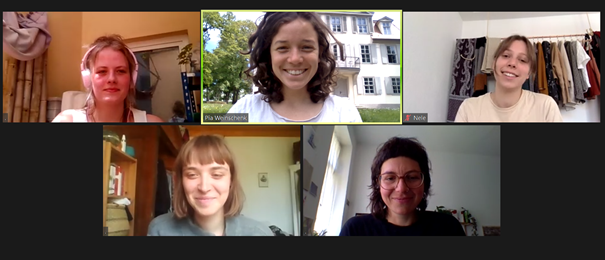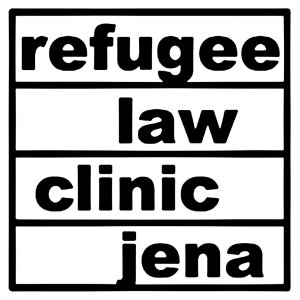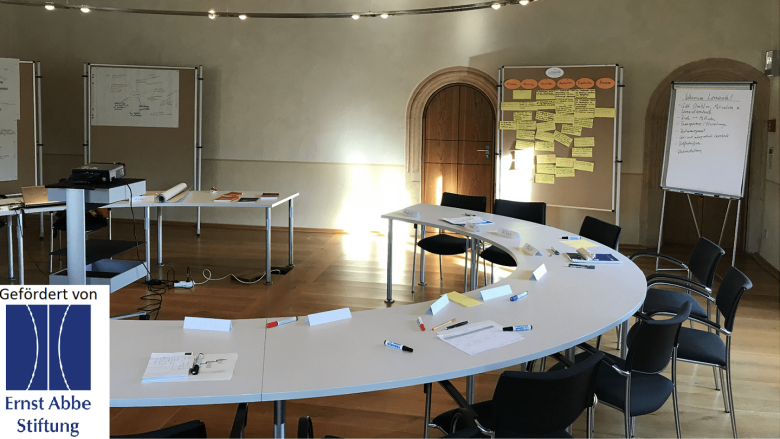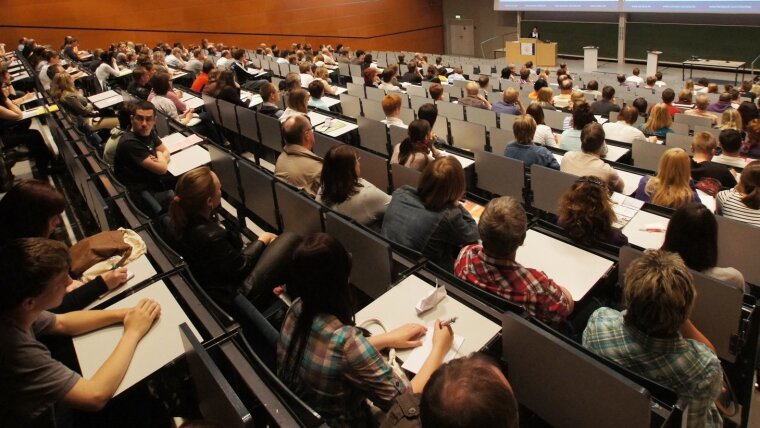
In the winter semester 2018/2019, the ALe for the first time awarded funding for the further development of academic teaching within Friedrich Schiller University Jena.
We are pleased to present the projects funded in the five funding lines here:
Free Space for Teaching
-
Intercultural Organizational Behavior (funding period: winter semester 2021/22 to summer semester 2022)
Project leaders: Dr Elisa Hofmann and Prof. Dr Daniela Gröschke
Image: privatThe aim of the project is to develop a module "Intercultural Organizational Behavior" and to include it as an elective module for the bachelor's degree in "Intercultural Business Communication" (supplementary subject). This will close an important bridge between Intercultural Business Communication and Business Administration in order to enable more connectivity for students and at the same time to develop a unique selling point for our bachelor's degree. First, teaching content on "Organisational Behaviour" is to be enriched with the perspective of "Interculturality". As an innovative teaching method (and further bridge-building), suitable "classroom experiments" are then to be transferred and applied to "Intercultural Organizational Behavior". In "classroom experiments", students are placed in decision-making situations and learn about the psychological and organisational theories and concepts underlying the results in subsequent discussions.
-
LiLApedia: Development, Evaluation and Implementation of a Wiki-Based Teaching Concept for Teacher Training (funding period: winter semester 2020/21 to summer semester 2021)
Project leaders: Dr Frederike Schmidt and Dr Stefan Lotze
Image: PrivatIn the project, students’ coursework consists in wiki articles published online, which they jointly develop, discuss and optimize over the course of a semester. The primary goal of these contributions is the transfer of scientific knowledge to representations that are used in school practice. The entire collection and individual articles are expanded and renewed in later seminars, which ensures that the content is always up to date. Through the media implementation as a wiki, academic achievements continue to exist in the sense of a joint product, which demonstrates the overarching meaning of one's own contributions in a motivating way. In addition, LiLApedia will be a publicly available and yet qualitatively assured online compendium for school teaching in the long term. In the project applied for here, an alternative model of action is to be established, evaluated and further developed.
-
Against the Dispute over Methods. Redesign of Methods Training in Sociology as Major and Minor Subject (funding period: winter semester 2018/19)
Project leaders: Prof. Dr Sylka Scholz and Prof Dr Kathrin Leuze
Image: links: FSU; rechts: Maria Conradi, Fotostudio Fotografa BerlinThe Institute for Sociology is in the process of restructuring sociological methods training with the aim of systematically linking the previously dominant quantitative methods training with qualitative methods training and training students equally in both methodological traditions. Such an undertaking comes with a variety of challenges: Firstly, both methodological strands have historically developed in distinction to each other and have each developed their own specialist languages; innovative forms of teaching must be developed accordingly. Secondly, teachers in academic practice conduct either qualitative or quantitative research and are often not familiar enough with the other methodological tradition. Therefore, an exchange of content between the lecturers is implemented by means of a workshop. Thirdly, based on the results of the first two steps, a methodological-methodical perspective will be developed and published.
HereThis link requires a loginde you can find the final project report (URZ login credentials required).
Innovation in Teaching
-
"Ethics in biographical perspective" - women theologians from East and West tell stories (funding period: winter semester 2022/23 to summer semester 2023)
Jun.-Prof. Dr. Sarah Jäger and Johannes Müller
Image: Rabea BrackA main seminar is planned that will combine the teaching content of church history and ethics. The aim is to discover ethics in the sense of a narrative ethic in concrete stories of life. In this way, students learn to locate their own ethical decisions historically and to reflect on them critically.
Women theologians from East and West Germany (born between 1940 and 1960) are interviewed digitally or presentationally using oral history methods on ethical topics that have shaped their own (ecclesiastical) professional path. For West Germany, Antje Heider-Rottwilm or Christine Busch will be interviewed, for East Germany Kerstin Gommel or Ulrike Auga. In this way, ethical issues of the 1980s and 1990s such as nuclear energy, the environment, peace, feminism and equal rights, homosexuality, etc. can be addressed. In the next step, small films will be made of the interviews and supplemented with ethical analyses, which will then be published on their own homepage. -
Podcast and Seminar: Literature review (funding period: winter semester 2022/23 to summer semester 2023)
project leader Prof. Dr. Jonas Sauer
Image: Jürgen Scheere (University of Jena)At the Institute of Mathematics, there are already very good additional offers for students in the first semesters, such as the Maths Café. The planned combined seminar / podcast concept "Literature Review" is aimed at advanced students with an interest in mathematical research. The podcast will provide insight into the various existing works in a particular subject area of mathematical analysis and at the same time shed light on the international networks of people that are not easy for students to see.
Students in special lectures often find themselves in the situation of wanting more orientation in the existing literature. The "Literature review" proactively counters this circumstance and provides students with a guide to draw on a broader horizon of knowledge both in the selection and in the preparation of their theses. Ideally, by the end of the module, the participant would have developed a research question for their thesis.
-
Digital health literacy for all: Teaching concept for a cross-faculty block seminar (funding period: winter semester 2022/23 to summer semester 2023)
Project leader: Prof. Dr Jutta Hübner
Image: Anne Günther (University of Jena)Digital health literacy has been on everyone's lips at least since the Covid pandemic and is at the same time a prime example of the necessity of interprofessional teaching. After all, hardly any other topic affects so many health professions equally. However, there are nearly no courses that address the topic interprofessionally and convey the knowledge to our students in a practical way. We would like to offer the inter-faculty seminar "eHealth Literacy" in order to close this gap and to do justice to the current changes in the health system in teaching. Students from different disciplines will prepare for guided discussion and exchange of perspectives on various aspects of eHealth interventions because of specially created teaching videos and selected publications. The course concludes with an overarching practical project with complex case studies in study-discipline heterogeneous groups.
-
Let me pass, I'm a psychologist!" Acquisition of emergency psychological competence via the methodology of forum theatre (funding period: winter semester 2022/23 to summer semester 2023)
project leader: Laura Sophia Sterba
Image: Manuel GlatterThe project enables students of the psychology bachelor's degree to learn about, apply and critically reflect on intervention techniques in emergency psychology. Groups of students develop emergency-specific interventions for dealing with those affected after teaching basic emergency psychology skills. Using the methodology of forum theatre according to Augusto Boal, an intensive application and reflection of these interventions takes place in the seminar sessions. The individual student working groups portray together with professional actors the various emergency situations in which they themselves act as emergency psychologists and the actors take on the role of those affected. Together in the plenary, there is critical reflection and processing of the procedure until a satisfactory course of action has been worked out.
-
Problem-based learning in the context of academic psychotherapy studies using the example of the applied subject Clinical Psychology (funding period: winter semester 2022/23 to summer semester 2023)
project leader: Prof. Dr. Ilona Croy and Dr. Marcel Franz with team Fabian Rottstädt and Carina Heller
Image: Antonie BierlingThe direct study programme Master Psychology with a focus on clinical psychology and psychotherapy has been implemented with the entry into force of the legal reform on psychotherapist training, as of September 2020. This enables students to become psychotherapists. The degree programme will also be offered at the FSU in the winter semester 2023/24. For academic teaching, this means that in addition to the receptive imparting of knowledge, learning and testing spaces must be implemented in which future psychotherapists learn key competences relevant to their profession. For this purpose, we would like to use the teaching-learning form of problem-oriented learning (POL), which is already very well established and evaluated in the teaching of human medicine for somatic clinical pictures. Problem-solving skills are acquired by working on practice-relevant questions, and teamwork and self-directed learning are promoted in small groups. We would like to adapt this concept, extend it to mental illnesses and integrate it into the seminars on clinical psychology. To this end, we plan to develop suitable working materials for analogue and digital formats and then test and evaluate them within seminars.
-
If you want to treat me, you have to know who I am" -- Discrimination-conscious and diversity-oriented teaching in medicine (funding period: winter semester 2021/22 to summer semester 2022)
Project leaders: Prof. Dr Marie von Lilienfeld-Toal and her team
Image: Prof. Dr. Marie von Lilienfeld-ToalThe innovative and interdisciplinary teaching project is aimed at medical students in the clinical semesters and is intended to convey basic knowledge about diversity in medicine and (structural) discrimination as well as critical awareness of this. Central to the teaching concept is the idea of intersectionality. Through an interdisciplinary seminar and workshop series, students are taught medical and sociological knowledge as well as an awareness of the patients' perspectives. In addition, the interactive seminars in the sense of research-oriented learning serve to identify the deficits of medical curricula, which can be addressed in subsequent teaching and research practice. After the completion of the teaching project, the aim is to make it a permanent part of teaching practice and to expand it into a larger research cooperation.
-
Flexible, interactive e-learning through literate programming (funding period: winter semester 2021/22 to summer semester 2022)
Project leader: Prof. Dr Alexander Brenning
Image: Anne Günther (University of Jena)Data science methods of geoinformatics and statistics are key competences that have a special significance in the Jena geography programme. Their teaching is primarily aimed at application and critical interpretation of results. A frequently requested adaptation by students is the provision of diverse application scenarios with reference to different subject interests and professional fields.
We meet this challenge with an innovative approach - the automated generation of case studies with text-based programming techniques. With the respective learning objectives in mind, we develop schematic definitions for exercise tasks that are automatically woven from a case study database into individualised, interactive online tasks that are integrated into the learning platform. Initial attempts have been positively received, but are expandable and do not yet sufficiently open up the possibilities of interaction.
-
Digital Vocabulary Learning Cards for Ancient Languages (funding period: winter semester 2021/22 to summer semester 2022)
Project leader: Dr Roderich Kirchner
Image: Anne Günther (University of Jena)The project serves to develop or further develop specialised learning software and to provide vocabulary learning cards for the ancient languages. The Latin and Greek courses at the FSU require intensive learning. Central to this is the learning of vocabulary and the repetitive training of the acquired vocabulary. The teaching material is usually tailored to the courses; therefore, there are no offers from commercial education providers. Within the framework of the project, digitally available data sets on Latin and Greek vocabulary, root forms and idioms are processed and implemented in the software.
-
Chemistry Studies 4.0: Digitalisation in Chemistry (funding period: winter semester 2021/22 to summer semester 2022)
Project leaders: Prof. Dr Ulrich S. Schubert and Prof. Dr Timm Wilke
Image: Anne Günther (University of Jena)Central elements of digitalisation are to be integrated into the chemistry degree course in a new course offering, initially designed for training at master's level. For this purpose, a module is being developed that teaches students the content of programming, databases and artificial intelligence. In the associated seminar, they apply the knowledge they have acquired and develop their own programmes for practical chemical problems in the area of measurement data acquisition, visualisation and evaluation. The project-oriented character opens up spaces for the development of own systems to address questions from one's own area of interest. The best results can then be transferred to final theses or, if necessary, to other courses. The transferability of the seminar concept to other degree programmes with practical laboratory courses is anticipated and will be evaluated during the project.
-
From Digitization to Differentiation (funding period: winter semester 2020/21 to summer semester 2021)
Project leaders: Clemens Hoffmann, Elizabeth M. Watts and Julia E. Fleischmann
Image: PrivatProject leader: Dr Elizabeth Watts
Although research in the field of inclusive learning has increased exponentially since the ratification of the UN Convention on the Rights of Persons with Disabilities in Germany and digital tools and support technology have been available on the international market for many years, many teachers and student teachers are still not familiar with such offers and products. In the field of digitization, we see the potential to change access to learning and to enable personalized learning that meets the needs of all students. The goals of this project are not only to better prepare future biology teachers to use digital tools for teaching in increasingly diverse classrooms, but also to create a collection of 3D digital models and videos that can then be loaned to current teachers for direct use in the classroom.
-
Virtual Chemistry (funding period: winter semester 2020/21 to summer semester 2021)
Project leader: Prof. Dr Stefanie Gräfe
Image: Jan-Peter Kasper (University of Jena)In this project, concepts of virtual reality will be introduced into chemistry education in both major and minor subjects. For many concepts in chemistry, such as reaction mechanisms, molecular orbitals, but also more complex reactions such as the ‘docking’ of a substrate molecule to an active centre of an enzyme, a good three-dimensional (3D) representation of the system is of immense importance for understanding.
This project will therefore use modern technical approaches to visualization to help students train their spatial imagination, develop a 3D idea of the molecules and thus a better understanding. We follow two different approaches: (1) the (inter)active ‘experiencing’ of the 3D environment through virtual reality (VR). (2) The ‘grasping’ of larger molecules and systems by means of plastic forms that were created via a 3D printer. -
Profession-Oriented Supplementation of Theoretical Physics in the Physics Teacher Training Programme (funding period: winter semester 2020/21 to summer semester 2021)
Project leaders: Prof. Dr Holger Cartarius and Phlipp Scheiger
Image: Links: Anne Günther, Rechts: Ronny NawrodtThe fundamental concepts of theoretical physics are undoubtedly important for the physics teacher training programme. They help future teachers to achieve sufficient subject-specific sovereignty to be able to concentrate on teaching. However, the associated courses are perceived as difficult. A great potential of the study programme is not used under these conditions. With this teaching innovation, the courses of theoretical physics are supplemented in such a way that their profession-oriented benefit for the physics teaching profession is worked out and the link to school physics becomes recognizable. Intensive courses are being developed to prepare students for mathematical formalism, and seminars are being set up to work out a school-relevant perspective from the content of theoretical physics. All newly developed content will be documented for delivery in future years.
-
Digitization of the "Propädeutikum zum Examensrepetitorium im Zivil- & Öffentlichen Recht" (funding period: winter semester 2020/21 to summer semester 2021)
Project leader: Dr Marion Schmidt-Wenzel
Image: Anne Günther (University of Jena)The existing pre-exam revision course in civil and public law is intended to facilitate students' entry into the one-year university exam preparation at the Faculty of Law. The six-week block course has so far taken place purely as a classroom course. However, due to the timing from the beginning of September, it is not possible for all students in the target group to attend the course.
Thanks to the funding from the Academy for Teaching Development, the questions and exam instructions that have only been marginally addressed up to now, as well as learning techniques, will be implemented through digital formats, thus supplementing and supporting the existing face-to-face propaedeutic course. Among other things, teaching and learning videos, video feedback and learning status tests are used.
Due to the basic approach, videos cannot only be used repeatedly in the upcoming rounds of the propaedeutic course, but also in other courses of exam preparation. -
FNU: Training Module for the Introduction to Interdisciplinary Science Teaching (funding period: winter semester 2019/20)
Project leaders: Prof. Volker Woest and Clemens Hoffmann
Image: Anne Günther (University of Jena)As part of the ProfJL project (Professionalization from the Start in the Jena Model of Teacher Education), a teaching-learning programme was developed for student teachers of biology, chemistry and physics, which is intended to prepare students for interdisciplinary science teaching in a way that is both school-relevant and practice-oriented. With the help of funding from the Academy for Teacher Development, the teaching-learning programme will be continued and the links between the individual subject didactic training areas strengthened. In this way, the contents are to be anchored in the long term as important components of the science teacher-training programme. One approach to this would be the implementation of the teaching-learning offer as a separate module in the required elective area. A pool of materials consisting of practical examples, methods, and opportunities for reflection serves as a basis for this and will be further expanded.
HereThis link requires a loginde you can find the final project report (URZ login credentials required).
-
Latin for and in Philosophy (funding period: winter semester 2019/20)
Project leaders: Prof. Dr Perkams and Tim Haubenreißer
Image: Anne Günther (University of Jena)A large and significant part of basic philosophical texts is in Latin. For a research-oriented study of philosophy, knowledge of this language is therefore indispensable in order to find meaningful access to these original texts, to examine the quality of the translations, to understand them as the product of hermeneutic processes, but also to be able to critically and analytically process texts in the first place. Although Latin teaching has the potential to teach philosophical topics and working methods in a targeted way and thus to create more popularity for itself, at the University of Jena and elsewhere, the focus is mainly on practising grammar and vocabulary without reference to the subject. In order to address this situation, a course- and competence-related Latin course will be taught from the summer semester 2019 to the winter semester 2019/20 in the seminar ‘Latin for Philosophers: Texts, Discussions, Perspectives’. The innovative project is also intended to serve as a platform for students to contribute their ideas and, in the medium term, aims to make a corresponding teaching offer permanent, which should be a model for other languages and degree programmes and an advantage for the University of Jena.
HereThis link requires a loginde you can find the final project report (URZ login credentials required).
-
Physics Internship for Medical Students 2020 (funding period: winter semester 2019/20)
Project leaders: Sabine Stück, apl. Prof. Frank Schmidl and apl. Prof. Katharina Schreyer
Image: Anne Günther (University of Jena)As part of the restructuring of medical studies ‘Masterplan Medizinstudium 2020’, preclinical training will also face increased demands that require a reorientation in teaching. Therefore, we are planning to transfer the physics practical course for medical students from a pure practical course to a new form of practical course consisting of a coordinated mixture of interactive co-seminars and subsequent independent experiments.
The novel combination of co-seminars, as a quasi-interactive lecture with combined practical exercises by the students, preceded by the actual practical course, is intended to ensure a more optimal training of all students in directly comparable areas identified as important for further medical studies. In addition to deepening and consolidating the subject-specific foundations for the subsequent teaching sections in the preclinical phase (especially physiology), the prerequisites for possible later clinical research are also to be created.HereThis link requires a loginde you can find the final project report (URZ login credentials required).
-
Blended Learning and Gamification for Bridging Courses in Business Information Systems (funding period: winter semester 2019/20)
Project leader: Prof. Dr Ruhland and Frau Berger
Image: privatDatabase systems are of central importance in the research and teaching field of business informatics. It has been known for years that the heterogeneity of the prior knowledge of the participants in the Master's programmes requires the delivery of bridging courses. A blended learning concept allows efficient use of the university's own personnel capacities and Internet offerings. Expanding this with elements of gamification not only promises to keep interest high in general, but also makes those learning elements more exciting that are generally considered particularly dry, but are indispensable for in-depth academic discussion. Key competences are developed along the way.
HereThis link requires a loginde you can find the final project report (URZ login credentials required).
-
Internationalization through Digitization: Virtual Cross-Border Business Games (funding period: winter semester 2018/19)
Project leader: Prof. Dr Jürgen Bolten
Image: Anne Günther (University of Jena)With the aim of linking internationalization and digitization, a virtual intercultural business game is to be developed within the framework of the project. In future, it can both be a fixed part of the supplementary subjects in the Bachelor’s programme Intercultural Business Communication and be used by other subjects of the Faculty of Humanities, the Faculty of Economics and the Faculty of Behavioural Sciences as well as the Language Centre. The business game uses a virtual classroom, which in turn will be integrated into a Moodle platform. Both provide the basis for student teams from three international universities to interact together. The aim is to make it possible to experience challenges of intercultural action ‘live’ and to be able to reflect on corresponding challenges. The project work includes the creation of text- and video-based handouts for independent use by lecturers.
Duration: October 2018 to September 2019
HereThis link requires a loginde you can find the final project report (URZ login credentials required).
-
Oncological Case Conferences in Student Teaching (funding period: winter semester 2018/19)
Project leader: Prof. Dr Jutta Hübner
Image: Anne Günther (University of Jena)Based on the simulation of case conferences, medical students in the 9th subject-related semester will gain fundamental insights into the development of therapeutic strategies in multimodal therapies, the interaction of different disciplines and professional groups, and interdisciplinary and multiprofessional communication. The focus will be on understanding complex therapy processes, taking into account the therapy goal, communicating about this with the patient and supporting informed decision-making. In 6 seminars, 6 selected tumour types and different therapy situations (initial diagnosis to palliative situation) are discussed.
In the course of the semester, interim evaluations serve to adjust the concept if necessary. The results of the final evaluation and experiences are to be scientifically published and presented. The project should result in the creation of a sustainable concept for student teaching that can be transferred to other subjects.
Duration: October 2018 to December 2019
HereThis link requires a loginde you can find the final project report (URZ login credentials required).
-
Integrative Argumentation Didactics (funding period: 2018/19)
Project leaders: Jun. Prof. Dr David Löwenstein and Dr Peggy Hetmank-Breitenstein
Image: Anne Günther (University of Jena)Analysing and evaluating as well as developing arguments on one's own is not only a philosophical core competence, but also essential in other fields both inside and outside the university. The subject of philosophy has a special responsibility to promote the development of these competences. Yet an integrative didactics of philosophical argumentation, which aims to combine both analytical and logical as well as productive-creative argumentation skills, has remained a desideratum to this day. With our project, we want to systematically teach and further develop the teaching of formal logic, which is often completely disconnected from actual argumentation, and the didactics of writing, which is uninformed by logical argument analyses. Our aim is to provide training in persuasive argumentation in which logical acuity and successful text composition are intertwined.
Duration: October 2018 to September 2019
HereThis link requires a loginde you can find the final project report (URZ login credentials required).
Discussion about Development in the Faculties
-
Discourse day: Teaching at the faculty of theology (funding period: summer semester 2022 to winter semester 2022/23)
project leader Dr. Johannes U. Beck
Image: J. Immanuel BeckFor the first time, the Faculty of Theology is holding a "Teaching Discourse Day" to establish a discourse on quality features of teaching. It serves as a dialogue between all status groups about the "Principles of Good Teaching" (Teaching Strategy 2025) and the faculty-related quality features of teaching and is intended to create a participatory forum for their reflection. Specific topics such as digitality or pandemic-related teaching will be reflected on against the background of the respective teaching and learning experiences in addition to dialogue formats in a moderated world café. The aim is to use the insights gained from this for teaching development. The results are recorded graphically in order to subsequently be discussed further in committees and status groups. In the long term, a "Discourse Day on Teaching" should take place at least once a year. For the strategic development of the faculty, the exchange about teaching and the implementation of the "Principles of Good Teaching" are of great importance.
-
Communication Curriculum (funding period: summer semester 2019)
Project leader: PD Dr Ulrich Wedding
The Masterplan 2020 envisages a reformation of medical studies. The aim is, among other things, to place greater emphasis on teaching communicative competence (doctor-patient, doctor-doctor, doctor-nurse, doctor-family members, ...). The coalition agreement of the current Federal Government shows clear commitment to the implementation of the Masterplan 2020. With the support of the Federal Ministry of Health (BMG), a longitudinal model curriculum on communication has been developed, whose implementation is the task of the faculties of medicine. A development dialogue is needed at the University’s Faculty of Medicine to implement this communication curriculum. This process will be initiated in a kick-off event with Professor Jana Jünger, head of the Institute for Medical and Pharmaceutical Examination Questions (IMPP). In addition, an actual survey of the teaching of communicative competence in medical studies is necessary. Teaching and testing communicative competence is the goal of the Faculty of Medicine in the coming years.
-
Closed-Door Conference on Ensuring Academic Success (funding period: winter semester 2019/20)
Project leader: Prof. Dr Volker Jänich
Image: Anne Günther (University of Jena)The University’s Faculty of Law will hold a one-day closed conference on the topic of ensuring academic success through a modernization of education in the areas of specialization at the Augustinerkloster Erfurt in early September 2019. Law faculties nationwide are complaining about a decline in the number of graduates. Hardly imaginable for many, there is a threat of a shortage of lawyers. A working group at state level, with the help of an expert opinion from the German Centre for Higher Education Research and Science Studies (DZHW), has been searching for the causes of students dropping out. It is striking that students only drop out very late in their studies (on average after 7 semesters, i.e. after the intermediate examination). At the planned closed conference, the Faculty of Law wants to look for ways to make the education in the areas of specialization, which takes place in the critical study phase, more attractive in order to reduce the dropout rate.
HereThis link requires a loginde you can find the final project report (URZ login credentials required).
-
JeMid—Jena Didactics in Medicine (funding period: winter semester 2018/19)
Project leader: Claudia Ehlers
Image: Anne Günther (University of Jena)The Faculty of Medicine would like to develop the teaching offers in the field of medical didactics according to the guidelines of the Medical Didactics Network of Germany. For this, it is necessary to reach a consensus within the faculty. All teachers should be well prepared for their teaching - this includes basic university and medical didactics training. The main focus of the training programme should be on post-doctoral training. In addition, further courses in medical didactics should be offered, e.g. for new teachers at the Jena University Hospital, training in special teaching/examination formats, but also more advanced qualifications (Medical Didactic Qualifications MQ1/MQ2). Cooperation with the Service Centre for Higher Education Didactics (LehreLernen) will be further intensified.
In order to plan a consented ‘JeMid’, the Faculty of Medicine would like to enter into dialogue with its lecturers and involve external speakers. A planning meeting for a one-day workshop is being prepared. A concept presentation in the Commission for Teaching and Studies as well as adoption in the faculty council is being sought.
Duration: October 2018 to September 2019
HereThis link requires a loginde you can find the final project report (URZ login credentials required).
Student Initiatives
-
'Paper-Club', a literary club to promote interdisciplinary thinking (fundig period: winter semester 2022/23)
project leader Madeleine Kündgen
Image: Madeleine KündgenInterdisciplinary exchange is becoming increasingly important, but there are hardly any opportunities to learn or promote interdisciplinary thinking. That is why I, a student of microbiology, decided to found a literature club that promotes exactly this. The concept is that the meetings are led by constantly changing moderators, who announce a paper in advance. The meeting itself is not for practising presentation skills, but rather to facilitate interdisciplinary discussions. For this purpose the moderator briefly summarises the paper and leads into a discussion with cleverly posed questions. Interdisciplinary exchange is promoted because of participating students from a wide variety of universities and disciplines. In addition, discussion skills will be deepened/extended by coaches. For the most inclusive communication, the participants will also be supported by a gender representative.
If you are interested, please send me an email: paper-club@mail.de
-
'ASA' - Academic writing with App (funding period: winter semester 2022/23)
project leader Björn Karg and Friederike Andrees
Image: Pia SteinbrückerAs part of the programme, we want to develop an app to support academic writing. Our experience as peer tutors in the writing centre is the starting point for this idea. On the one hand, the app should offer students a personalised way to learn and further development of writing, and on the other hand, to provide more general assistance for the organisation. For example, these include: Networking and question platforms, management tools and visualisation aids. In this way, students can develop targeted solutions with the help of personalised support. The additional tools for organisation provide a suitable framework for planning and carrying out the writing process. Through the matching of writing types and writing techniques, the writing and encourages reflection on one's own work and its challenges.
The aim is to gain independence in academic scientific writing for students. -
Health care for marginalised patient groups (funding period: winter semester 2022/23)
logo of the university group IPPNW/KritMed
Image: IPPNW/KritMedIn the core curriculum of medical studies, there is often little time to deal with the challenges of marginalised patients. However, these people are also encountered by future
doctors in everyday clinical practice. We, the university group IPPNW/KritMed* Jena, want to fill this gap with the series of events "Health care for marginalised patient groups". For this purpose, lecturers will be invited to a selection of topics, which will give students in the clinical semesters an insight into these types of issues.
A diverse range of topics will be covered, from trans* patients and sexual health to people with disabilities and BIP. The events will take place as seminars so that a productive exchange is possible. -
Online conference "Diversity-sensitive sexual education in biology teaching and didactics" 02.09.-04.09.2021 (funding period: winter semester 2021/22)
Project leaders: Anne-Kathrin Ballhaus and Louise Fahrenkamp
Image: Anne-Kathrin Ballhaus und Louise FahrenkampIn the three-day online conference on the topic of "Diversity-sensitive sexual education in biology teaching and didactics", current perspectives are discussed and basics are conveyed. Sexual education in biology lessons is both content ("sex education") and a permanent cross-subject and cross-institutional task in the work with young people. Diversity sensitivity, i.e. the recognition and appreciation of diversity (including gender, sexual orientation, language), is a central competence for biology teachers in order to support the educational and identity development processes of adolescents in the best possible way and to do justice to the inclusive educational claim.
Anchored in biology didactics, the conference is explicitly inter- and transdisciplinary. Workshops will be held on content and spaces will be opened up to network and develop ideas together. In order to bring theory and practice together, students and trainees, their trainers of all phases and professionals of all disciplines of child and youth work and education are cordially invited.
-
Course Digitisation (funding period: winter semester 2021/22)
Project leader: Hannah Bayer
Image: Hannah BayerDigitisation has become more prominent due to the pandemic and its consequences (digital teaching). The aim of the project is the competence-relevant learning of digitisation on a photographic level, taking into account cultural science and museological guidelines. By learning standardised digitisation processes, future graduates of FSU Jena will acquire skills that are essential in a digital world. For example, student work can be shared via the web and made available to the interested public, with the provision of digitised material and its metadata being a valuable addition to the university's external image. It enables wider, cross-regional exchange and comparison of research results, which leads to more scientific input and a broader understanding. By expanding digital databases, both teaching institutions and students can access a greater number of teaching materials in the long term and include them in their research.
-
"Stand Up & Present" – an interdisciplinary journal club (funding period: winter semester 2021/22)
Project leaders: Ahmad Shana'ah and Micha Banz
Image: Ahmad Shana'ah und Micha BanzThe ability to present data generated in a scientific process to an expert audience is a major challenge for many students. Yet learning this core competence is still not firmly implemented in the core curriculum of German universities in the form of structured courses.
We - students of human medicine and of the master's programme in molecular medicine - have founded a student-organised journal club to practice presenting self-selected scientific publications or our own results in a collegial atmosphere. We would like to train and encourage each other, but also put ourselves to the test in order to strengthen the analytical skills from the audience's point of view as well as the presenters' capacity for criticism.
Last but not least, this initiative also gives us the space to try out new presentation formats and software in an appreciative environment and, if successful, to establish them for ourselves and future generations.
-
Error culture -- Success through error culture (funding period: winter semester 2021/22)
Project leaders: Christina Sygulla and Alexandra Peupelmann
Image: Christina Sygulla und Alexandra PeupelmannWithout errors, there is no research. Studying is about learning new things and gaining experience. The attitude towards dealing with errors strongly influences our approach and willingness to make mistakes - to take the safe and familiar path or a new path that is supposedly more risky. The project "Error Culture" aims to establish a working group of student volunteers. Recruitment is to take place through virtual information events, combined with an accompanying onboarding process. After successful onboarding, the working group is to offer interdisciplinary workshops on the topic of error culture - dealing with errors to interested students. The aim of the workshops is to reflect on the individual handling of errors and to offer a platform for sharing these experiences in order to show the students the lessons learned and to "disempower" this taboo topic.
-
Internship Website for German as a Foreign Language – German as a Second Language Students (funding period: summer semester 2021)
Project leaders: Zichun Huang, Leonie Rotsche, Sahibe Muslumzade and Jana Dix
Image: Zichun HuangThe project ‘Internship Website for German as a Foreign Language – German as a Foreign Language – German as a Second Language Students’ offers Bachelor’s and Master's students of the study programmes a way to find internship opportunities more easily. In order to avoid hours of research in the vastness of the internet, we have decided to create a website with possible internship institutes around the world. On this website, students can find a list of different types and locations of internships. Once students have decided on an institution, they click on it and will receive concrete information (e.g. general conditions of the internship, location, website) about the internship, information about the internship location as well as information about the contact person, which makes it possible to get in touch as quickly and directly as possible.
-
Divided in Unity—30 Years after Reunification. A Series of Events (funding period: winter semester 2020/21 to summer semester 2021)
Project leaders: Lisa Gersdorf and her team
Image: Max GräßnerThirty years after the German-German reunification, we feel it within society in general, but also at the University in particular: we are not yet ‘unified Germans’. Many still feel like Ossi or Wessi and condemn the other as Jammerossi or Besserwessi. This feeling of ‘us’ and the ‘others’ is still an East-West German problem today, which the next generation also feels exposed to. Through our series of events, we aimed to raise awareness of the mental division. Within these events, people from different generations who study, teach or work at the university, from the old and new federal states, were able to come together and exchange their own experience, values and wishes. Through listening to and discussing with one another, trust and understanding are to grow, allowing for sympathy for the ‘other’.
HereThis link requires a loginde you can find the final project report (URZ login credentials required).
-
Learning Foreign Languages with Methods from Drama and Narrative Pedagogy (funding period: winter semester 2020/21)
Project leaders: Alexandra Treder and Sora Meyberg
Image: José Adolfo Carril PaniaguaBy using methods from drama and narrative pedagogy in foreign language teaching, communicative ability to act, intercultural competence and holistic and creative learning processes can be promoted. In the study programme German as a Foreign and Second Language, the didactic-methodical concepts of drama and narrative pedagogy have so far only been dealt with theoretically. On two dates in the sommer semester 2021, students were given the opportunity to practically apply games and methods from drama and narrative pedagogy and to reflect on their possible applications in the teaching context. Professional drama and storytelling pedagogue Maria Carmela Marinelli, who also focused on teaching methods of multilingual storytelling, led the workshop. With this impulse to promote multilingualism, the workshop offered further points of contact with a broad spectrum of central topics in the study programme.
HereThis link requires a loginde you can find the final project report (URZ login credentials required).
-
Countering Discrimination—Shaping Diversity—Series of Events by and for Students and Interested Parties (funding period: winter semester 2020/21)
Project leaders: Alexandra Treder and her team
Image: PrivatThe online conference was aimed at students and lecturers in educational study programmes as well as interested parties. We understand discrimination as something that affects everyone. Prospective German as a Foreign Language / German as a Second Language teachers do not only teach German, but also talk about social, political and historical issues with the participants, e.g. in the context of integration courses. Therefore, we are looking for answers to the question of how to talk to each other about controversial issues—both privately and in professional, i.e. in our case teaching-learning contexts—while remaining appreciative and culturally sensitive and at the same time representing one's position. In workshops, lectures and discussion rounds with speakers from academia and practice, possibilities for answering this question were presented and strategies developed together with the participants on how to deal with discrimination and diversity in order to enable peaceful coexistence in a diverse society.
HereThis link requires a loginde you can find the final project report (URZ login credentials required).
-
Automation of Programming Exercises (funding period: summer semester 2020)
Project leader: Roman Wanusch
Programming exercises at the University of Jena are largely submitted and corrected manually. This is associated with a turnaround time of one week and a high correction effort. Increasing the feedback frequency (from one week to one minute) and partially automatizing the correction would not only increase efficiency but also support more differentiated, individual learning.
A large number of courses and technologies that realize such automated programming exercises are already available on the internet; however, there is uncertainty about their fit, flexibility and long-term controllability.
This project will examine a Moodle-based technology (CodeRunner) as an example and evaluate it in a concrete course with about 40 students. In the long term, this project should contribute to establishing such a technology at the Faculty or even at the University of Jena. -
Support in the Introductory Phase of Studies (funding period: winter semester 2019/20)
Project leaders: Tjorben Matthes, Katharina Wölfl and Georg Schwartz
Image: Tjorben MatthesFinding one’s way around studies and everyday life at university is one of the first major challenges of starting one’s studies. In many cases, this succeeds, but the faculty usually loses a noticeable proportion of students, especially female and male students in teacher training programmes.
In order to reduce dropout rates and retain students in the long term, a large-scale support programme for new students is presented here.
Beginning with the introductory days, the first-year students are supervised in small groups by student and professor mentors, who are available as contact persons both for subject-related questions and as private reference persons.
In addition, as was the case last year, an exam preparation weekend for first-semester students will be offered at the end of the next winter semester (24 to 26 January 2020).HereThis link requires a loginde you can find the final project report (URZ login credentials required).
-
Lecture series ‘Footnotes in Psychology’ (funding period: winter semester 2019/20)
Project leaders: Lea Stegmann and her team
Image: Lea StegmannIn the winter semester 2019/2020, peripheral areas of psychology will come into focus on six different dates, for example environmental psychology or culture- and migration-sensitive psychotherapy. Despite the topicality and socio-political relevance of these topics, they are rarely mentioned in the course of psychology studies. In the lecture series ‘Footnotes in Psychology’, these topics will be examined and intensively discussed. The aim is to impart knowledge, arouse curiosity and stimulate a critical examination of the topics through informative and interactive evenings. Academics and professionals from the field organize the events and offer an insight into research and practice with a lecture, a workshop or a panel discussion. Emphasizing the interdisciplinary character of the topics, the events are aimed at students of all disciplines.
HereThis link requires a loginde you can find the final project report (URZ login credentials required).
-
Refugee Law Clinic Jena – clinical legal education (funding period: winter semester 2019/20)
Students of the University of Jena founded the Refugee Law Clinic JLC Jena in 2016. We offer an open consultation hour for refugees several times a week. In addition, we organize an annual training programme in asylum and residence law. Fellow students who have successfully participated in this can then join us as counsellors after a period of observation. In accordance with the idea of clinical-legal education, we want to give our students the opportunity to complement their theoretical studies with practical work. At the same time, we want to contribute to effective access to (human) rights and support people in an often particularly precarious situation through a low-threshold offer. We are in close contact with fully qualified lawyers who specialize in migration law and provide us with expert advice.
HereThis link requires a loginde you can find the final project report (URZ login credentials required).
-
Implementation of in-class on-line quizzes (funding period: winter semester 2018/19)
Project leaders: Aleksandr Kazakov and Anna Zherdeva (M.Sc. Economics students)
The project referred to scientifically proven study strategies improving learning processes such as spaced retrieval, interleaved practice, generative learning and self-assessment.
The project tended to the implementation of these strategies into the in-class learning process: In selected courses, students involvement is to be enhanced by performing a short quiz at the beginning of each lecture. The questions target on recapitulating the content of previous lectures as well as building bridges towards subsequent subjects and areas of application. The quizzes will be implemented by using online quiz services such as Moodle. The results will provide regular feedback on the learning progress.
The project corresponds with the aims of the Faculty’s working group ‘Neue Medien in der Lehre’ and was carried out in close consultation.
Funding period: October 2018 to September 2019
HereThis link requires a loginde you can find the final project report (URZ login credentials required).
-
Exam preparation weekend (funding period: winter semester 2018/19)
Project leaders: Tjorben Matthes, Katharina Wölfl and Georg Schwartz
Image: Anna Katharina WölflAt the end of the winter semester (25 to 27 January 2019), the student council of the Faculty of Physics and Astronomy organizes an exam preparation weekend for first-year students. For this purpose, about 50 students and 10 tutors travel to Bad Sulza for three days to study for the upcoming exams. This project serves to accompany and support the first semester students.
The students from the first semester who participate are offered an optimal learning environment: group rooms to work in, a large pool of exam questions, fellow students studying for the same subjects, and finally tutors from higher semesters who are available to answer questions and give tutorials. In addition, short oral mid-term exams take place in between, through which students receive individual feedback on their learning progress. On the last day, students can write mock exams in the individual subjects to simulate the real exam situation.
Funding period: January 2019 to September 2019
HereThis link requires a loginde you can find the final project report (URZ login credentials required).
Student Initiatives PLUS
-
Exam preparation weekend (KlaVoWo) in mathematics (funding period: winter semester 2022/23)
Project leader: Niklas Menge
Image: privatIn order to support first-semester students in the Department of Mathematics in mastering the transition from school to university mathematics, the FSR Mathematics has been organising the exam preparation weekend (KlaVoWo for short) since 2016. Tutors from higher semesters support first-semester students in preparing for exams. Important learning strategies and subject-specific skills are practised and consolidated using maps developed in recent years for the subject of mathematics. In addition, the students are offered a learning development discussion during the weekend, in which they are supported in reflecting on their own learning status. At the end of the weekend, a mock exam can also be written under the most realistic conditions possible, for which the students receive feedback from the tutors.
A unit on working out effective learning strategies completes the offer. -
'CampusCouch' workshops and implementation of the application-oriented workshops (funding period: winter semester 2022/23)
project leader: Dorothea Schmitt and team
Image: CampusCouchWe would like to offer thematic workshops in addition to our listening offer for students to expand our student initiative, the CampusCouch. These will expand the courses offered to all students of the Faculty of Social and Behavioural Sciences with practical and application-oriented programmes. In terms of content, the workshops will focus on therapeutic approaches. For this purpose, the psychodynamic discussion group will be available, as well as a systemic workshop. In addition, methods of relaxation will be taught such as progressive muscle relaxation and mindfulness techniques. We would like to offer interdisciplinary discussion and discussion rounds on non-violent communication and reducing the stigmatisation of psychotherapy. We would like to invite experts from the field and pay them appropriately for their professional work. We want to use the Academy's funding for this purpose.
-
Exam preparation weekend mathematics 2022 (funding period: January to September 2022)
Project leader: Niklas Menge
Image: privatIn order to support first-semester students in the Department of Mathematics in mastering the transition from school to university mathematics, the student council has been organising the exam preparation weekend since 2016, during which tutors from higher semesters support first-semester students in preparing for exams. Important learning strategies and subject-specific skills are practised and consolidated using maps developed in recent years for the subject of mathematics. In addition, the students are offered a learning development discussion during the weekend, in which they are supported in reflecting on their own learning status. At the end of the weekend, students can also write a mock exam under realistic conditions and receive feedback from the tutors.
-
Exam preparation weekend PAF 2022 (funding period: January to September 2022)
Project leaders: Katharina Wölfl, Tjorben Matthes und Adrian Minnich
Image: Michael DimlerFor four years now, the student council of the Faculty of Physicas and Astronomy (PAF) has organised an exam preparation weekend for students in their first semester, funded by the ALe and the Faculty of Physics and Astronomy. During this time, a comprehensive pool of tasks and associated solutions, as well as materials for tutorials, was built up. According to previous participants, this preparatory weekend is a great help for the entry into studies, so that this format will continue to be offered. At the moment, it is planned to hold the weekend from 28.01.-30.01.2022 in presence under appropriate hygiene conditions in the youth hostel Bad Sulza. During these three days, the students learn in an optimal environment: Together with their fellow students, they can work on difficult tasks and support each other. If necessary, tutors will help and work out solutions together. At the end of the weekend, the students can test their acquired knowledge in mock exams and already experience the exam situation. The funding of the ALe makes it possible for us to charge only a very small contribution to expenses, so that participation does not depend on the financial means of the students.
-
Lecture series ‘Footnotes in Psychology’ (funding period: winter semester 2021/22)
Project leaders: Pia Weinschenk and her team
Image: Pia WeinschenkBased on the goals and structure of the lecture series "Footnotes in Psychology" in the winter semester 2019/2020, the continuation of the project also aims to offer marginal areas of psychology and debatable approaches a space for knowledge transfer and discussion and to promote interdisciplinary exchange between students and experts. In order to promote the exchange between theory and practice and, in particular, to allow interdisciplinary and critical perspectives to have their say, topics were therefore deliberately chosen that complement the curriculum of the psychology degree. For this year's lecture series has once again set itself the goal of enabling students of psychology and other related disciplines (sociology, political science, social work, etc.) to look at the bigger picture together.
In order for this open, dialogue-based approach to find practical expression, the exchange of knowledge and experience between the invited experts and interested students will be given sufficient time in each event in the form of open discussion and question rounds, which will follow impulse lectures or panel discussions. This is intended to provide interested parties with multi-faceted perspectives on the future and knowledge and to underline the relevance of transdisciplinarity for the debate and work in the psychological and socio-political field.
-
"Understanding and recognising discrimination -- theory & reflexive practice" -- a complementary course offering (funding period: winter semester 2021/22)
Project leaders: Johanna Poggemann and her team
Image: Johanna PoggemannThe complementary range of courses is intended to enable an intensive examination of the history and functioning of discrimination. The focus will be on the intersectional consideration of (post-)colonial continuities of racism and related forms of discrimination.
The offer, consisting of a theory-focused seminar and a sensitising-reflexive anti-discrimination training, is aimed at students of the institute German as a Foreign and Second Language and Intercultural Studies. In view of their later professional activities in adult education and intercultural personnel development, this target group has a special role as future multipliers. The course is intended to fill a gap in the curriculum and serve as a pilot project for future courses that are firmly anchored in the curriculum.
-
Refugee Law Clinic Jena e.V. — legal and psychological supervision (funding period: summer semester 2021)
Logo of Refugee Law Clinic Jena
Graphic: Refugee Law Clinic JenaIn line with the clinical-legal education approach, the Refugee Law Clinic Jena e.V. offers students of the Faculty of Law the opportunity to practically expand their theoretical law studies through voluntary legal counselling in asylum and residence law.
In order to ensure high quality legal counselling, legal and psychological supervision is to be implemented on a monthly basis, thus professionalizing the counselling activities of the Refugee Law Clinic Jena e.V.. Through the legal supervision, basic legal knowledge in the field, current case law as well as counselling cases are instructed, deepened and reflected upon. In the framework of the psychological supervision, the counsellors are trained to deal adequately with the psychologically stressful situation of those seeking advice as well as their role as voluntary counsellors. A total of six supervisions —four legal and two psychological—are planned. -
Exam preparation weekend 2021 (funding period: January 2021)
Project leaders: Georg Schwarz and his team
Image: Georg SchwartzFor the past three years, an exam preparation weekend has been held in cooperation with the student representative committee of the Faculty of Physics and Astronomy. It was financed with funds from the ALe and the faculty, as well as donations from professors and non-university institutes. During this period, a large pool of exam questions and solutions was created. Since previous participants called the exam preparation weekend a great help, this format of supervised learning is to continue.
For this purpose, another digital exam preparation weekend is planned from 29 January to 31 January 2021. During these three days, the participating first-semester students will be offered an optimal learning environment: in digital group workrooms, they can puzzle over difficult tasks together with their fellow students and, if necessary, call in tutors to work out approaches with them. In mock exams, they can test their knowledge and prepare for the exam situation.
Other projects
-
Ernst-Abbe-Sommerakademie (Ernst Abbe Summer Academy)
Vorbereiteter Workshopraum
Image: Bernd TeufelGood teaching can be learned. Following this principle, 26 lecturers and tutors intensively familiarized themselves with the basics and fundamental questions of academic teaching within the framework of the Ernst Abbe Summer Academy for Higher Education Didactics. They were accompanied by four experienced higher education didactics experts from the Service Centre for Higher Education Didactics (LehreLernen). This project was funded by the Ernst-Abbe-Stiftung.
The aim was to enter into a concentrated work process together, far away from the daily work routine, and to bring back to Jena implementation strategies for teaching activities. This provided important impulses for the professionalization of teaching and thus for increasing the quality of teaching at Friedrich Schiller University of Jena. A special feature of the Ernst Abbe Summer Academy was its workshop character. The participants were able to work intensively in interdisciplinary groups on their questions and topics related to teaching and to apply the suggestions from the experts directly to their everyday teaching. The topics ranged from the basics of teaching and learning, to the targeted use of methods, to dealing with challenging situations in teaching, and to questions of testing and assessment.
